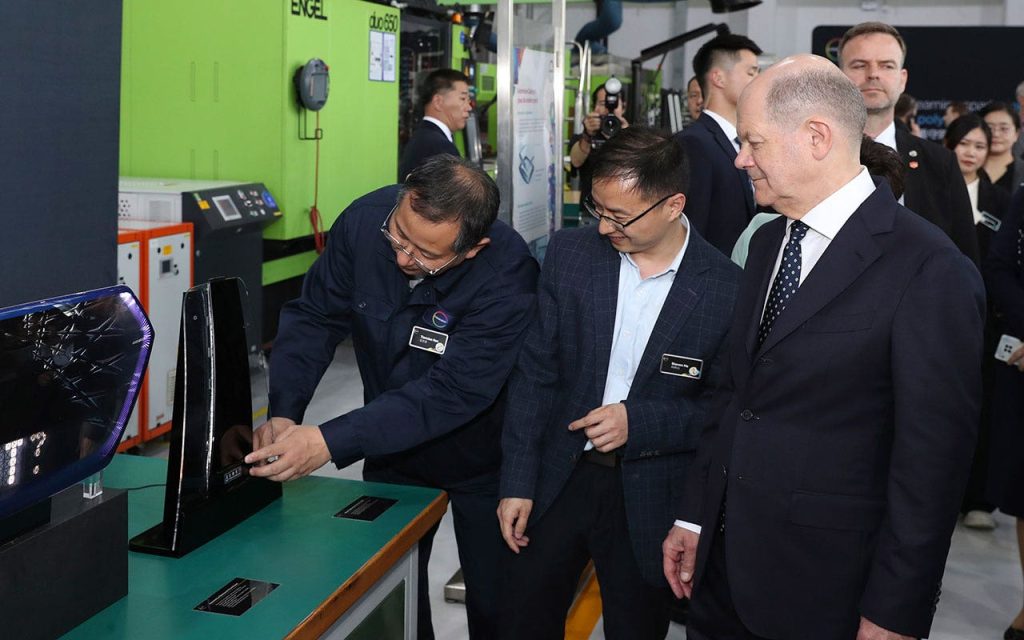At a meeting between German Chancellor Olaf Scholz and Chinese leader Xi Jinping, Scholz expressed concern about Russia’s invasion of Ukraine, stating that it poses a threat to global security. Scholz criticized Russia’s actions as violations of the UN Charter’s principle of national border inviolability and urged China to use its influence to help resolve the conflict. He also emphasized that the use of nuclear weapons in the war should not be threatened, in response to Russian President Putin’s recent warnings about potential nuclear use.
Despite Germany and Poland ruling out sending troops to Ukraine as tensions with Russia escalate, Scholz called on China to leverage its influence with Russia to convince Putin to end the war. China has thus far refrained from criticizing Russia’s invasion, but has provided economic support that has helped Russia cope with Western sanctions. A U.S. intelligence report indicated that China has increased equipment sales to Russia to indirectly boost its war effort against Ukraine. The two leaders affirmed their commitment to the U.N. Charter and opposed the use of nuclear weapons, supporting efforts for a peaceful resolution of the crisis.
During his visit to China, Scholz also emphasized the importance of fair trade and warned against protectionism, dumping, and overproduction. He called for concrete improvements in market access, fair competition, intellectual property protection, and legal systems to create a favorable environment for German companies operating in China. The European Union has raised concerns about unfair competition from China, including tariffs, intellectual property theft, and political interference. Despite these tensions, China remains Germany’s top trading partner, with a significant amount of goods and services exchanged between the two countries in 2023.
Scholz’s visit to China aimed to address various trade-related issues and promote fair competition while also highlighting the significant economic ties between Germany and China. He emphasized the need for China to provide the right conditions for German companies to continue operating in the country. Scholz began his trip in Chongqing, where he visited company sites in the city known for its auto and other industries. The European Union is considering tariffs to protect against cheaper Chinese electrical vehicle imports that could potentially flood the European market.
Overall, Scholz’s interactions with Chinese leaders during his visit focused on addressing the Russia-Ukraine conflict, promoting fair trade practices, and ensuring a conducive environment for German companies operating in China. Despite the economic ties between the two countries, trade-related tensions persist, particularly concerning issues such as protectionism, intellectual property protection, and market access. Scholz’s discussions with Chinese leaders underscored the importance of working together to address global challenges and promote a fair and competitive trading environment.













